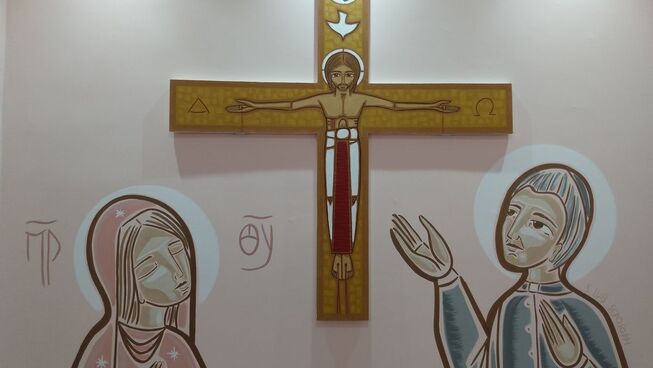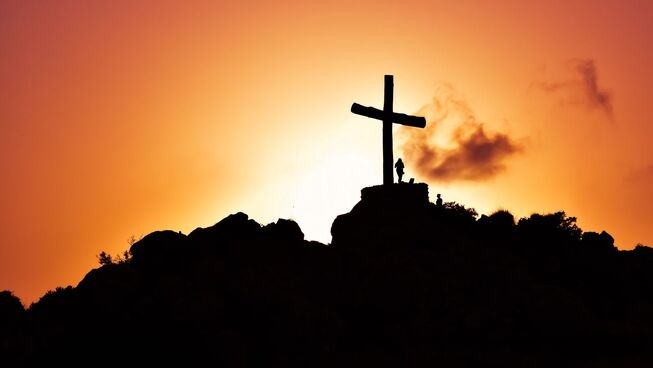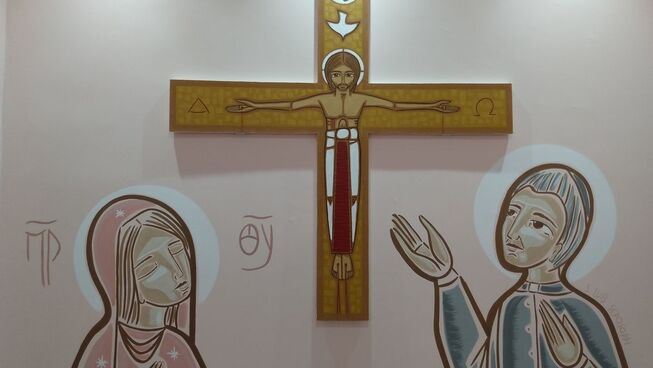Is the resurrection the most remarkable event in history?
What is the significance of the fact that the first Christian was a woman? Weren't ancient people superstitious and gullible?
Host Robert Martin discusses remarkable events in world history with Aaron Boyd (pastor Darebin Presbyterian Church).
This episode of Bigger Questions was recorded under the show's previous title, 'Logos Live', in Melbourne before a live audience as part of the Encounters with Jesus series in September 2015.
The Encounters with Jesus series was inspired by the book Encounters with Jesus by Tim Keller.
Help us keep asking Bigger Questions. Support the show for as little as US$1 per podcast on Patreon.
Bigger questions asked in the conversation
Smaller Questions
The smaller questions were about ‘remarkable events in world history’.
Remarkable events
How remarkable do you think an event needs to be before it ‘changes the world?
Are there are other events in world history which you think changed the world forever? The invention of Coca Cola?
Aaron's story
We’re interested to hear about why you believe the Scriptures are worth following. Aaron, what convinced you to become a Christian believer?
Didn’t you have a crisis of faith when studying philosophy and history?
The Bible Reflection - the impossible
This comes from the New Testament book of John, one of the four biographies of Jesus’ life that we have. Here a woman Mary has an encounter with Jesus, which changes her life forever.
Her encounter involves three things: the impossible, the rational and the personal.
First the impossible, and John 20:1, says,
Early on the first day of the week, while it was still dark, Mary Magdalene went to the tomb and saw that the stone had been removed from the entrance. So she came running to Simon Peter and the other disciple, the one Jesus loved, and said, “They have taken the Lord out of the tomb, and we don’t know where they have put him!”
Aaron, what do you think Mary was expecting when she went to the tomb?
Why wasn’t Mary expecting a miracle? Didn’t she expect Jesus to be resurrected?
Why was this just too remarkable for Mary to believe?
Weren’t ancient people just superstitious, believing all sorts of magic, miracles and powers? Weren’t they just gullible?
Atheist philosopher Thomas Nagal once wrote,
I want atheism to be true. I am made uneasy by the fact that some of the most intelligent and well-informed people I know are religious believers. It isn’t that I don’t believe in God and, naturally, hope that I’m right in my belief. It’s that I hope there is no God. I don’t want there to be a God.
What do you make of Nagal’s comments?
There are strong emotional and psychological reasons for why people would want to believe in God. And there are also powerful psychological and emotional reasons to disbelieve in God. How do we overcome these biases?
What about your personal life? Did you believe and then seek to justify them?
The Bible Reflection - the impossible
The first aspect of Mary’s encounter with Jesus was that it was impossible - she wasn’t expecting it. The second aspect of Mary’s encounter with Jesus here is that it is rational.
What is significant about the fact that Mary is the first reported eyewitness to the empty tomb?
After her encounter with the empty tomb, Mary goes to get Peter and Peter reacts.
So Peter and the other disciple started for the tomb. 4 Both were running, but the other disciple outran Peter and reached the tomb first. 5 He bent over and looked in at the strips of linen lying there but did not go in. 6 Then Simon Peter came along behind him and went straight into the tomb. He saw the strips of linen lying there, 7 as well as the cloth that had been wrapped around Jesus’ head. The cloth was still lying in its place, separate from the linen.
What do we make of this?
It’s common in our culture to think that, ‘if you want to believe in Christianity and the resurrection of Jesus, that’s good for you - don’t worry if it didn’t actually happen, if it works for you, you can believe it’. How do you react to that?
The Bible Reflection - the impossible
The final aspect of Mary’s encounter with Jesus here is that it is personal. After realising that the body was missing, poor Mary was in tears. She encounters a couple of characters around the tomb. One of whom is the risen Jesus.
Counsellors know that it is not enough to simply tell people how to live. Asking questions helps a person to recognise their errors, to discover and embrace truth from their hearts. So why do you think Jesus asks Mary two questions in verse 15, ‘’Why are you crying?’ ‘Who is it you are looking for?
Is it significant that Jesus and the angels in the tomb ask the same question, ‘why are you crying?’
Thinking he was the gardener, she said, “Sir, if you have carried him away, tell me where you have put him, and I will get him.”
What is the significance with Jesus calling her name?
In a sense here Mary becomes the first Christian. Why is that?
Is it significant that a woman is the first Christian?
What does the resurrection of Jesus mean to you? How is your life different as a result?
The Big Question
So Aaron, the resurrection of Jesus, is it really the most remarkable event in world history?
Photo by Cleverson Amaro from Pexels








